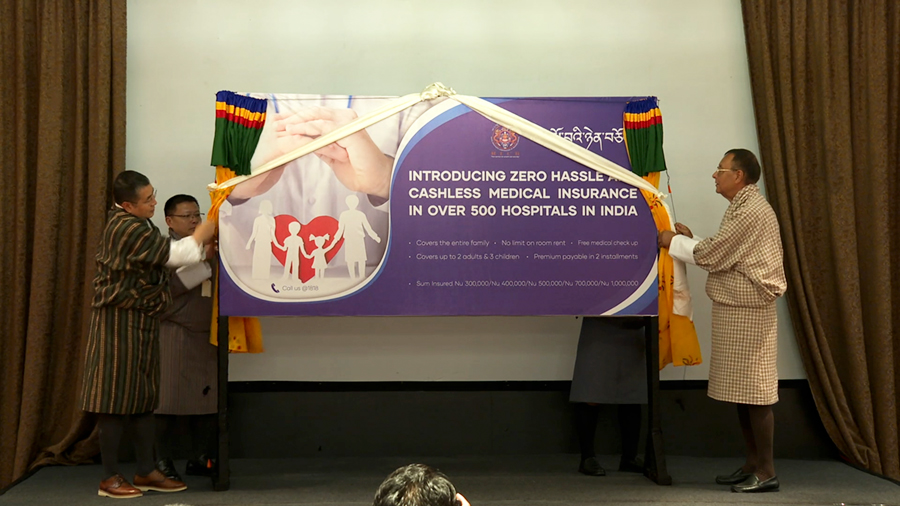
The Royal Insurance Corporation of Bhutan Limited introduced a new medical insurance scheme for referrals to India yesterday. The scheme is aimed at reducing the burden of medical referral expenses in the country. The initiative will cover expenses for up to 150 types of surgeries across 28 states in India.
The insurance is designed for Bhutanese citizens and residents who have lived in Bhutan for at least six months and who are aged between 18 and 70.
The new scheme extends coverage to families as well. A family plan includes coverage for two adults and up to three children.
According to RICB, the new insurance will ensure a hassle-free, cashless process, managing payments directly as long as expenses fall within the insured sum.
The premium amount is determined by the insured amount, which ranges between Nu 300,000 to a million and the age of the insurer.
“Firstly, the premium is affordable and, most importantly, it is payable in instalments according to your preference. The amount you pay depends on your capacity,” said Kinga Thinley, the general manager of Royal Insurance Corporation of Bhutan Ltd.
This comprehensive insurance also covers hospital room rent, daily expenses, and medical costs incurred 30 to 60 days before and after hospital stays.
Additionally, it includes domestic road ambulance charges and coverage for health expenses incurred at home.
“For the past three years, 787 patients have been referred. If not planned properly, this could drain the savings or funds of individuals and families. Our primary goal is to assist those in need and, secondly, to alleviate the burden on the government,” added the general manager.
Regarding the scope of coverage, he said that while currently focusing on 500 hospitals in India, plans aim to extend services to Nepal and Thailand.
Applications for the insurance can be made online or in person at RICB offices, with additional benefits such as free medical check-ups every two years.
According to the RICB, the government has spent over Nu 500 M between 2022 and last year on medical referral cases.
Singye Dema
Edited by Sherub Dorji








